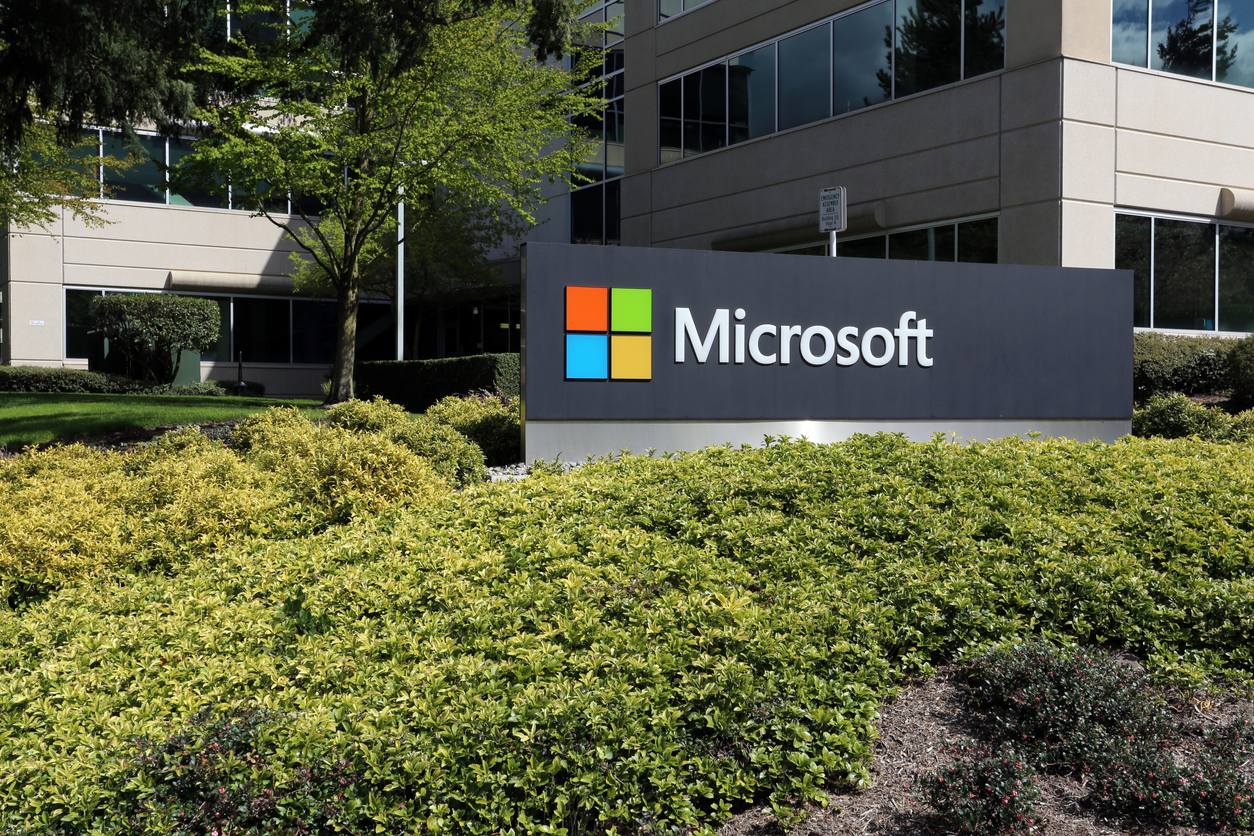Curating the week in wellness Nov. 1–5, 2021: Wellness lessons from Spotify and Microsoft, 8 keys to engagement, and more
The week’s essential content for those dedicated to employee well-being.

Greetings, wellness pros!
We hope you find this week’s collection of thought-provoking articles, tips and takeaways edifying and empowering.
Please get in touch with any ideas, suggestions or feedback on how we can serve you better or cover topics that are top of mind at your organization. Email: kaceyl@ragan.com.
1. Microsoft’s tips for navigating hybrid work.
For most of us, sorting out hybrid and remote work amid an ongoing pandemic has been like fumbling through the darkness. Even heavy hitters such as Microsoft are experiencing trial and error, though HR Executive shares 10 lessons the software giant has learned thus far, including:
- A strong culture counteracts chaos.
- Employee well-being has taken on new meaning. The piece explains: “Microsoft started by modifying its messaging, renaming its ‘sick days’ as ‘sick and mental health time.’ They offered discussion guides to teach managers how to talk to their reports about these varied areas and expanded benefits, including creating new pandemic leave for parents.”
- Managers matter, a lot.
- Use two ears and one mouth.
- Building social capital requires creativity.
- Inclusion is essential.
- Tech is the tie that binds.
The piece concludes: “As the pandemic continues and new ways of working become more solidified, employers will need to keep ‘listening, learning and adapting,’ Microsoft’s Amy Coleman advises—all with the goal of helping employees feel ‘seen and valued.’”
2. The positive power of proper pronunciation.
Those with relatively “easy” or familiar names can go a lifetime without having their name mispronounced. But those with names that are a bit more unfamiliar can be subjected to mortifying, alienating experiences on a frequent basis.
This might not sound like a major workplace issue, but HR Dive describes the serious implications this subtle bias can inflict on morale, belonging and inclusion.
The piece explains: “Similarly, of the survey respondents who admitted they’d struggled with name pronunciation, 13% didn’t call on someone in a meeting because they didn’t know how to pronounce their name and 16% said they didn’t talk to a co-worker for that same reason. Meanwhile, 22% of respondents said they didn’t introduce someone because they didn’t know how to say their name. More than making people feel neglected, ruckus or fear around a peer’s name can sabotage their advancement.”
Thankfully, tech can help alleviate this issue. About half of respondents (48%) to an October 2021 study, conducted by business card company Helloprint said, “printing a phonetic pronunciation of your name onto a business card is a great way of aiding B2B communication.” The piece goes on to highlight a company that integrates name pronunciations into software like Salesforce, and it mentions a new feature LinkedIn rolled out in July 2020, which enables users to upload 10-second audio clips of their proper pronunciation.
HR Dive concludes: “The way I think about it, we should be modeling and manifesting through values—like respect, inclusion and belonging,” NameCoach CEO Praveen Shanbagh says. “Those values in particular are critical to sustaining a dignified, diverse and free society.”
3. Seven keys to successful wellness programs.
Crain’s serves up timely tips to ensure your initiatives are well-rounded—and well-founded:
- Keep it simple and accessible.
- Use a variety of comms vehicles and diverse messaging to increase participation.
- Consider using vendors, such as medical insurance providers, wellness program platforms and pharmacy benefit managers.
- Freshen up programs that suit where your employees are in life right now.
- Measure participation; augment your approach as needed.
- Create a committee.
4. A roundup of reports on sustainability updates, DE&I progress and ESG initiatives.
For a bit of inspiration on demonstrating your company’s sustainability activities or philanthropic ventures, have a look at these recent reports:
5. How to boost engagement right now.
Human Resources Director shares eight vital tips to fight against “The Great Resignation,” including:
- Measure engagement with frequent, quick surveys.
- Train managers and supervisors.
- Ensure onboarding is helpful, meaningful and highly effective.
- Consistently collect feedback, and act on it.
- Recognize and reward employees frequently.
- Bend over backward to offer flexibility.
6. Seven questions that determine morale and employee experience.
Forbes says every company should consider how employees would respond to these questions:
- Does my manager care about my health and wellness?
- Does my manager ensure I get a break?
- Is my manager empathetic when I’m sick or need time off?
- Am I always expected to be available outside of work?
- Does the company care about my health and well-being?
- Does my company provide me enough time off?
- Does my company allow me to disconnect from my technology and work?
7. Latest vaccine rules, explained.
Bloomberg Law clears up confusion regarding what, exactly, companies can lawfully offer regarding vaccine incentives. At least right now.
The piece explains, “On Oct. 4, the Departments of Labor, Health and Human Services, and the Treasury (the tri-agencies) published guidance about incentives that employers may offer to encourage employees to receive Covid-19 vaccines. They generally explained that incentives may be lawful if they comply with tri-agencies’ wellness plan regulations.”
However:
The agencies caution that compliance with their regulations is ‘not determinative of compliance with’ the Americans with Disabilities Act (ADA) and the Genetic Information Nondiscrimination Act (GINA). The Equal Employment Opportunity Commission (EEOC) enforces those laws.
And yet…
“the EEOC has not explained how wellness plans can comply with the ADA and GINA and recently withdrew proposed wellness plan regulations.”
The piece goes on to explore the EEOC’s lack of clarity on these issues, concluding that power mostly rests on the side of employers. (That goes for mandate-related issues, too.) At least for now! It concludes:
“The EEOC’s silence creates uncertainty, but the public may take some comfort in knowing that no court has ever determined that a wellness plan that complies with the tri-agencies’ regulations violates either the ADA or GINA.”
8. Learning from Spotify’s “wellness week.”
Spotify is known as one of the most admired companies around. One big reason is that the company treats its employees well—and takes their well-being seriously.
Case in point is the company’s “wellness week,” which the company explains in a blog:
“We are so proud of our employees and their resilience while working hard and living through this pandemic. That’s why we’ve decided to close the Spotify offices for a week from today—so that each and every one of our employees can put some extra focus on their own wellness.”
The post adds context to the move, and concludes with an exhortation for other companies to follow suit:
“Of course, an extra week off will not ‘fix’ underlying problems in mental health, and it cannot be a magic potion to combat everything that we have been through in the last 18 (plus) months, but our aim is that this recharge week can be of some benefit.
We hope that all our employees will enjoy this additional time off to recharge, and that they return from this break revitalized and filled with energy. And we hope other organizations around the world continue to put the health, safety and well-being of their workforce at the forefront of their People Strategies. After all, what is our greatest asset? Yes—it’s our people.”
9. Is there a financial wellness component included in your open enrollment this year?
Benefits Pro makes the case that it should be, claiming, “With such extreme workplace churn, more companies are recognizing how a bespoke, dedicated financial wellness benefit can help them attract and retain top talent.”
It adds:
“These programs address head on the financial anxiety that so many employees experience, and that the pandemic accelerated. When financial wellness benefits include compensation and benefit planning, they also help employees better understand, appreciate and realize the total value of everything their employer provides them. That can be a real difference-maker when a recruiter comes calling.”






